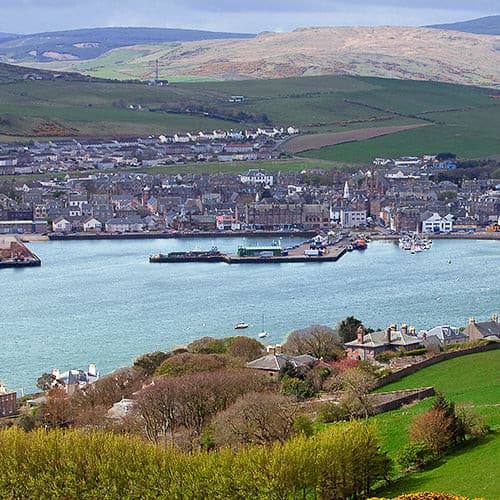Cask No. 93.73 Seaside chillies with syrup was one of the four bottlings from this distillery that contributed to the SMWS winning the title of Independent Bottler of the Year for the Campbeltown region in Whisky Magazine’s prestigious Independent Bottlers’ Challenge (IBC) competition – which also saw the Society named as Independent Bottler of the Year for 2017. Cask No. 93.73 Seaside chillies with syrup itself won a silver medal in the category for 13-20-year-old Campbeltown category.
The cask provided 264 bottles, which are exclusively available to SMWS members in the United States. The whisky was specially selected by the spirits team at the Society’s home at The Vaults in Edinburgh, who were seeking out a classic example of this Campbeltown distillery’s profile.
Cask No. 93.73 Seaside chillies with syrup combines a sweet spiciness with an oiliness, punchy maritime notes and a hint of salt in its finish – a perfect example of the Society’s Oily & Coastal flavour profile. The whisky was matured in a refill bourbon hogshead and also stands out for its heavily peated backbone, with notes of medicinal smoke balanced by its smooth sweetness.
“We selected this bottling exclusively for our US members because we felt it was an outstanding example from this historic Campbeltown distillery of a bold, complex but balanced whisky that will be sure to spark discussion and debate,” said The Scotch Malt Whisky Society’s spirits director, Kai Ivalo. “Whiskies from this region are not known for being shy and retiring, and this one is no exception – it’s got what I can only describe as a real ‘oomph’ in flavour, and I’m sure our US members will be in for a treat when they get a chance to sample it.”
Campbeltown is the smallest of Scotland’s Scotch producing regions, with only three surviving distilleries, although in the Victorian era the town was home to more than 30 distilleries and was once known as the ‘whisky capital of the world’. When whisky historian Alfred Barnard visited in 1885, on the tour that led to the publication of his epic book The Whisky Distilleries of the United Kingdom, he called it ‘Whisky City’. At that time, the area had 21 working distilleries, which he took two weeks to tour.
A combination of factors including the First World War, lack of manpower, industry consolidation, a growing market in Speyside and changing tastes saw the town’s whisky boom turn to bust, and by 1935 only Glen Scotia and Springbank distilleries were operational. Another factor in the town’s decline was the Prohibition era in the United States, which had previously been a major market for Campbeltown’s distinctively oily, smoky whiskies.
The town’s flavour profile may have proved a bit punchy following the end of Prohibition, but even in his landmark book Whisky from 1930, Aeneas MacDonald wrote: “The Campbeltowns are the double basses of the whisky orchestra. They are potent, full-bodied, pungent whiskies, with a flavour that is not to the liking of everyone… Yet, if the full repertoire of whisky is not to be irremediably impoverished, the Campbeltowns must remain.”
Thankfully, two of the Campbeltown distilleries did remain, and a third was re-opened in 2004, as the town and the area has undergone something of a resurgence. Production at distillery 93 had fallen to below 100,000 litres a year in 2008, far from its capacity. Following investment and a programme of renovation, production is now back up to over 500,000 litres a year. The process is still very much hands-on, as befits a distillery that was established at the start of the Victorian era in 1832 – less than 10 years after the Excise Act was passed, which sanctioned the distilling of whisky and ended the era of illicit stills.
The distillery’s whiskies are still matured on site in one of three warehouses, not far from the town’s bay, and the salt air that could play a factor in imparting a slight salty finish in the distillery’s whiskies. Where the region’s distinctive oily, maritime character comes from it still something of a mystery, however – but this is a whisky that rewards your own investigation.
Words by Richard Goslan



